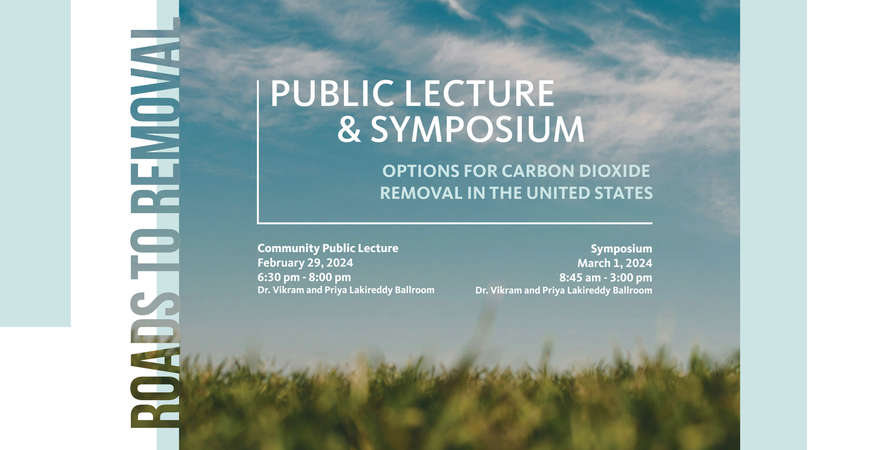
What does the greater Merced community need to know about climate change? How might the Central Valley play a significant role in discussions and solutions about carbon dioxide removal? What new projects are on the horizon, and can they bring economic and community benefits to the region?
These questions and more are set to be addressed as part of “Roads to Removal,” a lecture and symposium set for Feb. 29 and March 1 in the Dr. Vikram and Priya Lakireddy Ballroom, located in the Conference Center at UC Merced. The symposium will examine the research and opportunities identified in the report “Roads to Removal: Options for Carbon Dioxide Removal in the United States,” a first-of-its-kind analysis led by researchers at Lawrence Livermore National Laboratory (LLNL), along with a dozen other academic institutions.
In 2022, the United States established a 2050 goal to reach net-zero emissions by decarbonizing the economy, removing carbon dioxide from the atmosphere and storing at least a billion tonnes – a metric ton – a year. “Roads to Removal” answers the question: How much carbon dioxide is possible to remove and at what cost?
“The ‘Roads to Removal’ report enables local, informed decision-making in the quest to reverse climate pollution,” said LLNL scientist Jennifer Pett-Ridge, the report’s lead author and an adjunct faculty member at UC Merced. “Every geographical region in the nation has a unique story when it comes to carbon dioxide removal, and that’s especially true in the greater Merced and Central Valley area. There are several immediate carbon dioxide removal opportunities that could really make a difference in our region.”
“Roads to Removal” identifies pathways and opportunities in soil, cropland and forest management, biomass conversion, direct air capture, geological storage and transportation. It identifies regional, community and labor considerations — weighing alternatives and local benefits. The report concludes that removing 1 billion tonnes of carbon dioxide per year will roughly cost $130 billion annually in 2050 or about one-half percent of the nation’s current GDP.
“UC Merced is proud to be a partner in this landmark study and rollout of the findings to the public at large,” said UC Merced Chancellor Juan Sànchez Muñoz. “As the first public research university to achieve carbon neutrality in the nation, UC Merced has been on the cutting edge of sustainability in higher education since its inception and we are honored to be the first stop on this worthwhile endeavor.”
California Secretary of Food and Agriculture Karen Ross will be the event’s keynote speaker. State Sen. Anna Caballero (D-14) and former senior advisor to the Department of Energy Kate Gordon will address policy, energy and infrastructure considerations. Pett-Ridge and UC Merced Professor Teamrat Ghezzehei will address how the greater Merced community might benefit. Additional symposium panelists from UC Merced include associate professor Rebecca Ryals, professor Paul Almeida and the Community and Labor Center's Ingrid Brostrom.
Parking fees during the event have been waived to encourage community attendance. Get more information and register to attend the event online.



